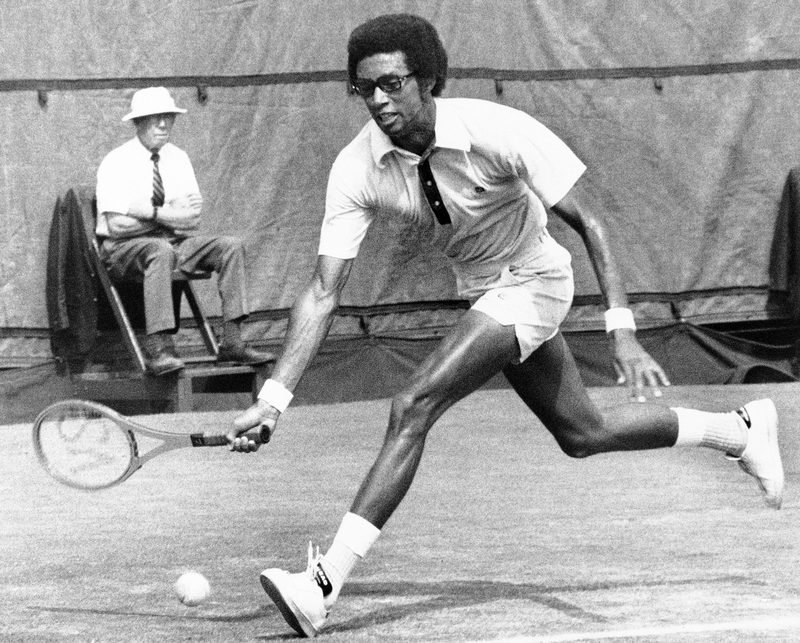
The Interview
Douglas Cooper took a page from Ashe's book and addressed him in the same soft-spoken manner for which the man was known. Cooper asked if the coverage by television was a factor in his game. He said they were all used to it.
Ashe took questions about his tennis clinic which was active year around. He talked about spotting talent, but said it was all about their follow up. They talked about his residence in Miami and the constant travel.
Ashe answered Cooper's questions about the progress of tennis vs golf. Ashe said that it wasn't about money and discussed tennis growth around the world.
Ashe noted that he not only endorsed the Head racquet, but had developed it. The 70's were his decade, as he became the first African-American player to win the U.S. Open, Wimbledon and the #1 ranked player in the world.
He suffered chest pains and underwent quadruple by-pass surgery, but continued to suffer pains. He retired from tennis in 1980, and in 1983 subjected himself to a second by-pass. No one could know that this surgery might cost him more than he gained: a transfusion gave him HIV, which he kept secret.
But Ashe was eclectic. Together with singer Harry Belafonte, he founded Artists and Athletes Against Apartheid. He wrote the three-volume Hard Road to Glory, about blacks in sports.
USA Today contacted him about his illness, which had become full-blown AIDS. He preempted their story with his own announcement in 1992. Ashe finished the draft of a memoir, days before his death. He was posthumously awarded the Presidential Medal of Freedom.
